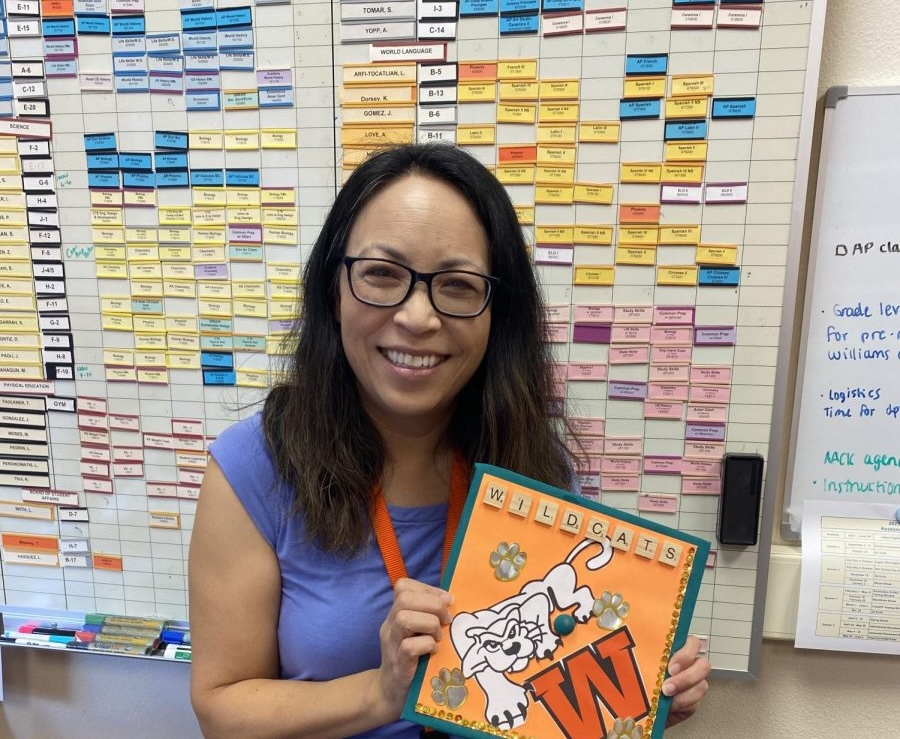Although many students dislike homework, some people have found it to be beneficial.
Homework can be work that wasn’t finished in class or practice meant to help students review. It can give students time to reflect on what they learned in class and to work at their own pace in a way they can’t do in the classroom.
“Homework is for students to independently practice what we learned in class,” Algebra II/Trig teacher Diep Clunn said. “It allows them to process at their own pace and think through problems on their own so that if they need more time or to digest it a little more, they need to do that at home. If there’s a question, they can come back with it. Sometimes in class, we don’t have enough time in class for things like that.”
Homework is a good opportunity to go over material that could potentially come up on a quiz or test. Sophomore Katherine Morales has found that by doing optional homework, she sets herself up to do well on tests.
“In my AS chem class, we get these practice problems that aren’t required,” Morales said. “They’re not considered homework, and they’re not graded. [However,] if you don’t do the practice problems, you’re not going to know what’s on the test. The same thing goes for homework in general. If you don’t try to actually do the homework and take time to practice the subject, you’re not going to do good.”
Freshman Evan Pandes had similar thoughts about the connection between doing well on tests and completing homework.
“I think homework is helpful because, without it, I do worse on the tests,” Pandes said. “Homework gives me the review that I need to know.”
Tests aren’t the only scores increasing with homework completion. Overall, class grades are affected as well.
“The homework submission rate of the class is also how good their grades are,” Clunn said. “I have one period where my Algebra 1 students do more homework, and the overall average of that class is actually higher than my other class who doesn’t do homework. There is a direct correlation.”
A reason for this is preparation. Ethnic Studies teacher Jenny Ortez thinks doing your homework sets you up for classwork coming the next day.
“Some homework has a timeline,” Ortez said. “If I’m teaching about the 60s, reviewing that homework would be helpful to then be a part of the conversation the next day.”
Clunn observed that homework is a self-evaluation of what a student is confident in and what they need help with.
“Sometimes things are difficult and when you sit down and try it and you don’t get it, it tells you that you need to get help,” Clunn said. “If you’re not doing the homework, you don’t get any indicator of what you understand.”
Not only is homework beneficial for learning, it can also feel good to complete.
“If the homework gave me time to practice and wasn’t repetitive, I actually enjoyed it [as a kid],” Clunn said. “ I felt successful when I got the problems right.”
Organizing your time and homework is a good way to stay on track with homework completion. Morales found an effective way to manage the day that allows her to finish her homework by the due date, and she utilizes Woodside resources.
“I like to give myself a 30-minute block for each period, depending on whether I have A days or B days for the next day,” Morales said. “I also go to The Den after school.”
The Den is after-school tutoring in the MUR, open to any student who wants a space to get work done. Since so many teachers post their work to Canvas, it’s possible to forget homework when there are no reminders to do it. Ortez has a couple of suggestions for methods that can help students remember what homework they have.
“I recommend not just relying on Canvas because teachers might forget something,” Ortez said. “I also recommend having another place to write down homework. If I don’t write it down, I don’t remember it. So, I love my planner.”
Students who find methods that work for them have the chance to gain a better understanding of themselves and the material.
“As much as homework might be a pain in the butt, it’s necessary in the long run,” Morales said.




















